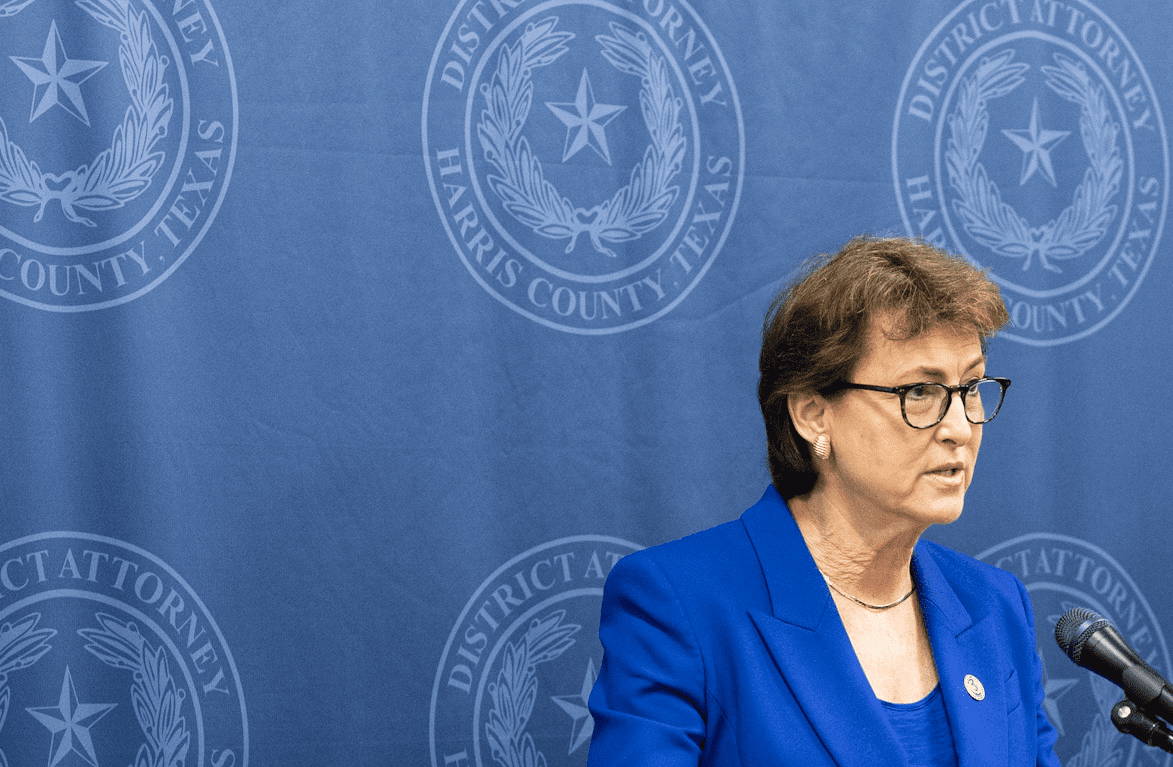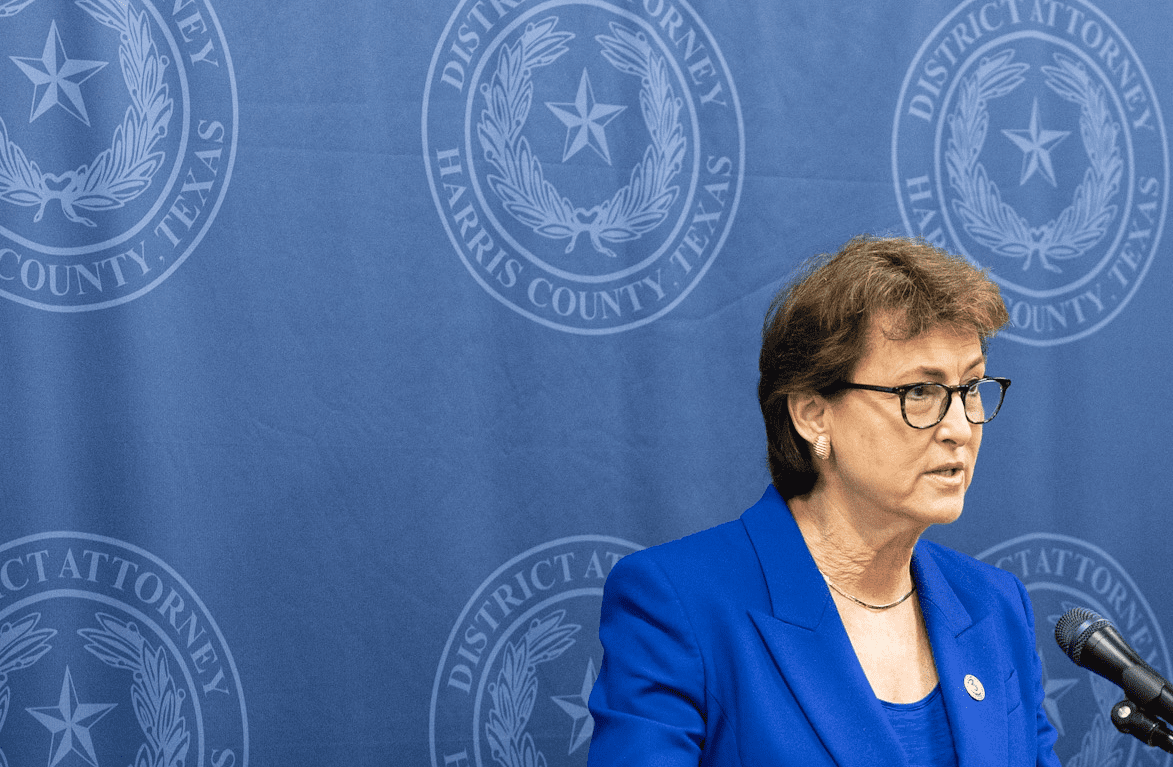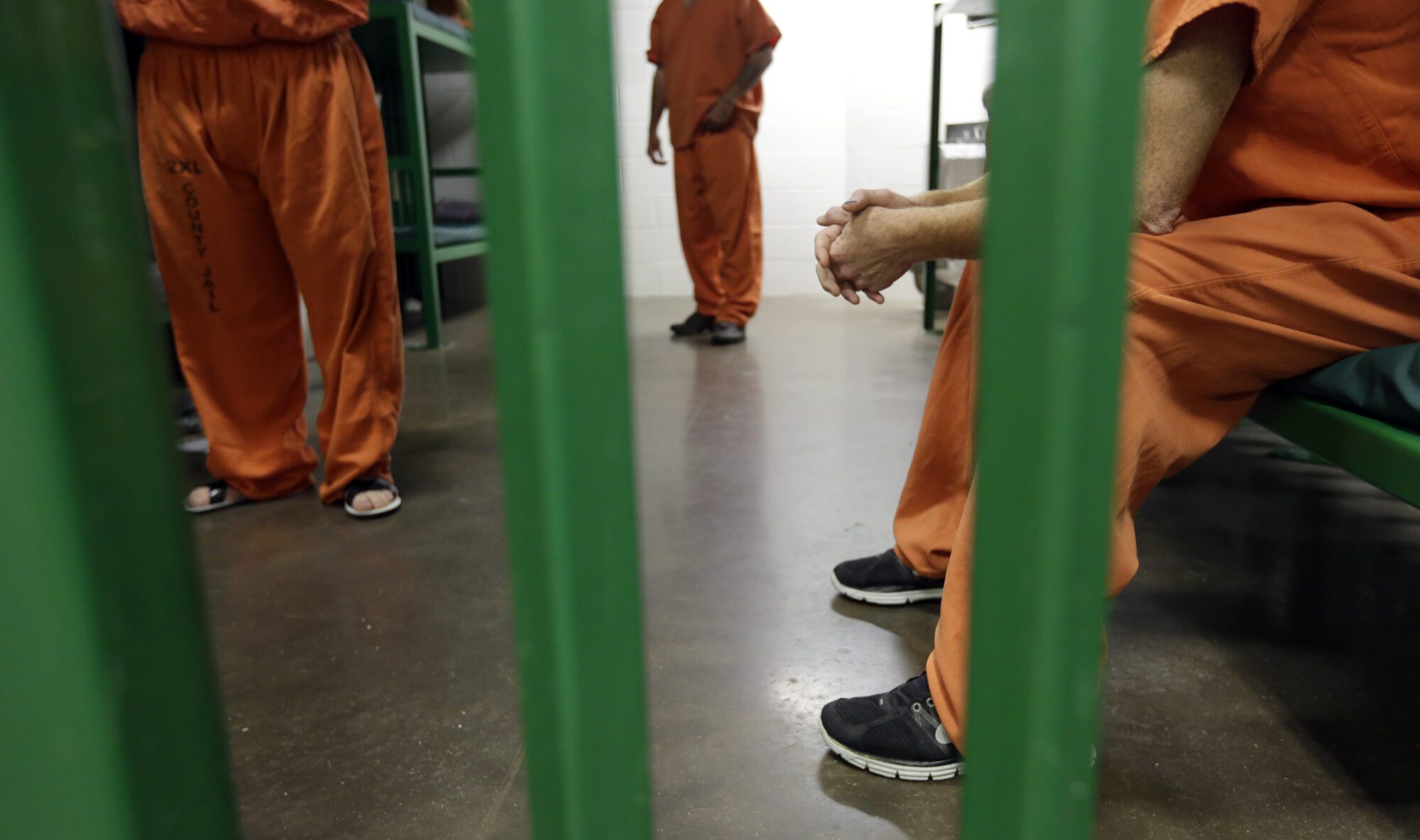“Playbook of Fear” Fails to Sway Voters in Austin and Houston DA Races
José Garza, Travis County’s reform-minded DA, prevailed on Tuesday. In Harris County, Democratic voters ousted DA Kim Ogg, who battled with her party in recent years.
Daniel Nichanian | March 5, 2024
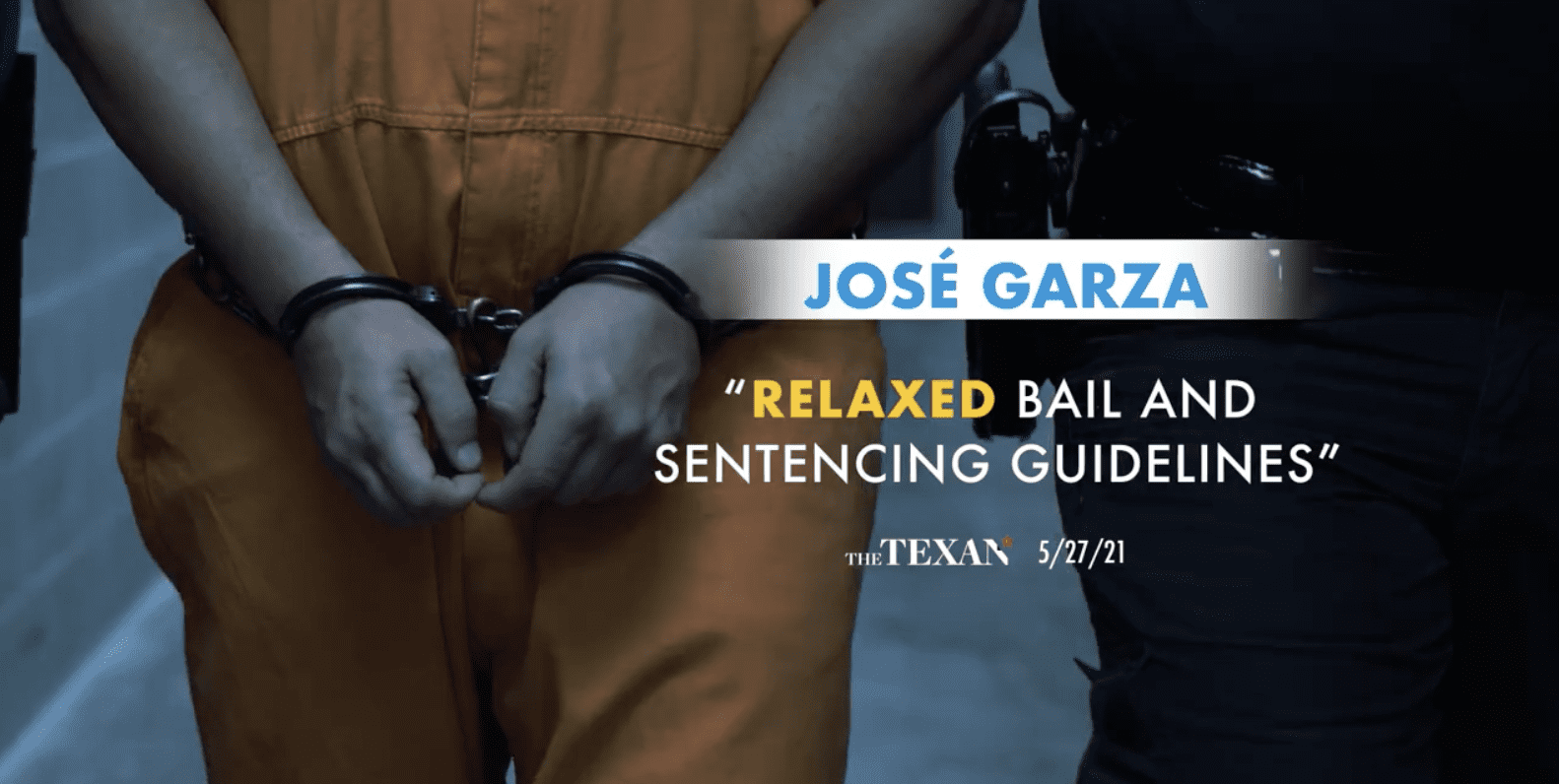
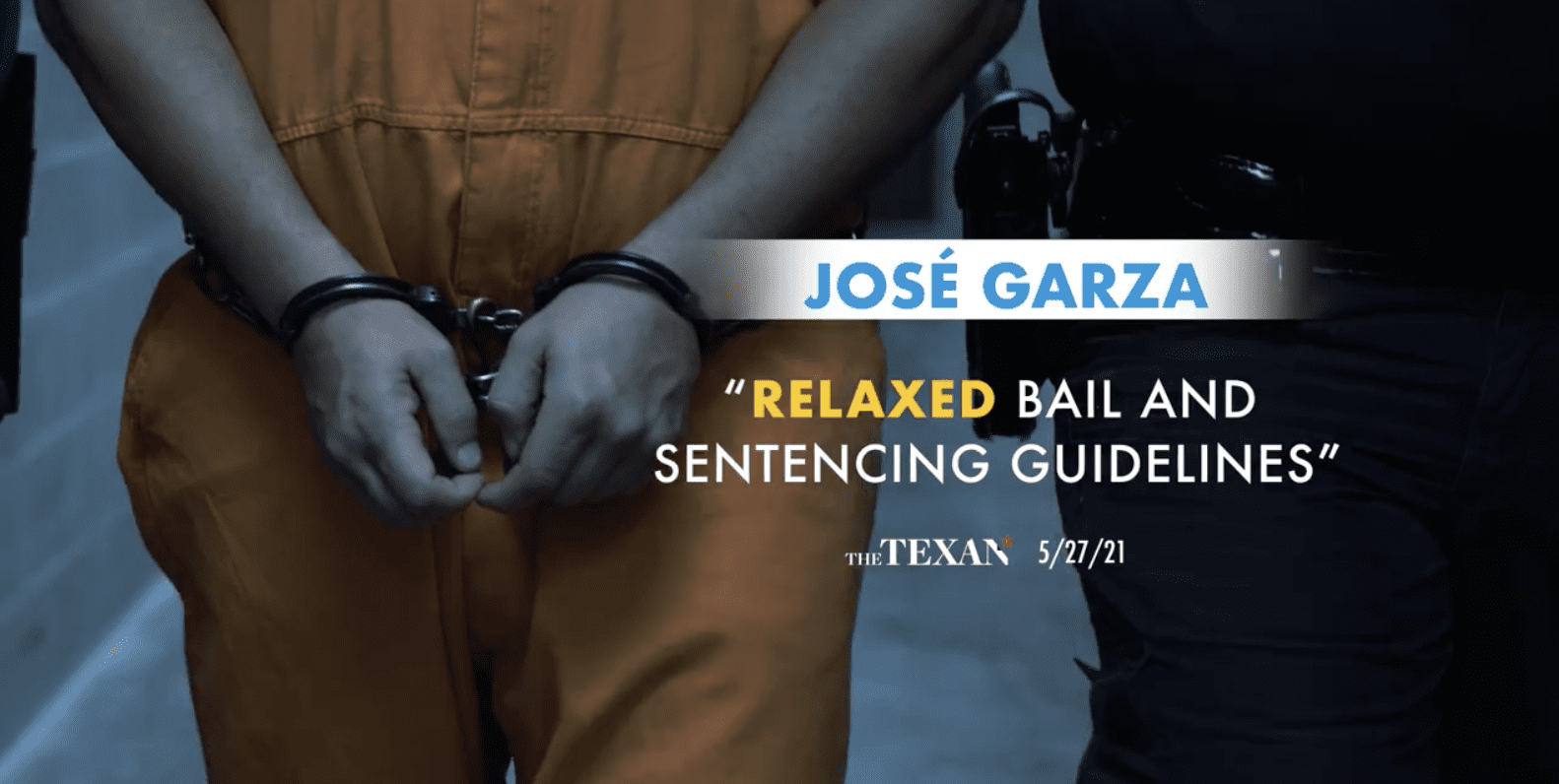
A despondent teddy bear sits below a grainy picture of Travis County District Attorney José Garza, flanked with a warning that says “Garza is filling Austin’s streets with pedophiles and killers.” The alarmist mailer, sent to voters by a dark money group, lit up the final days of Austin’s DA race. Challenger Jeremy Sylestine denied any involvement, calling the mailer “demagogic” and “extreme.” So did other high-profile critics of the first-term DA.
But while no one claimed responsibility for the mailer, it mirrored the language that Garza’s opponents have long used to say his reforms ushered in a period of lawlessness, despite data showing crime is on the decline.
Sylestine claimed that Garza painted a “political bullseye” on police officers, and aired an ad accusing him of being “lenient” on child sexual assault. The local police union similarly accused Garza of “targeting” cops for “political gain,” or giving a “sweetheart deal to a child predator.” The head of the local GOP called for his criminal prosecution and said that Garza has “declared war” on the police. Texas Attorney General Ken Paxton accused him of caring more about “the radical agenda of dangerous Antifa and BLM mobs than justice.” And they all routinely singled out the support he received in 2020 from a PAC associated with George Soros, the billionaire who has supported progressive causes and emerged as a leading foil for the right.
On Tuesday, Garza easily beat back his opposition, prevailing over the well-funded Sylestine in the Democratic primary.
As of publication, Garza leads Sylestine 66 to 34 percent. Garza will be heavily favored in November against Republican Daniel Betts, in this staunchly blue county.
Bob Libal, a Garza supporter and Austin-based reform advocate, said he was inundated toward the end of the campaign by “extreme fearmongering rhetoric,” text messages and images that falsely portrayed Austin as a “dystopic, crime-ridden place” with criminals “roaming the streets.”
Libal told Bolts that Garza’s win “speaks to the broad popularity of progressive criminal legal reforms in Travis County, even up against an extremely well-funded campaign operating from the playbook of fear.”
Over in Houston, Harris County DA Kim Ogg has employed a similar playbook during her tenure in office, long accusing proponents of criminal justice reform of filling the streets with violence.
On Tuesday, she lost overwhelmingly in the Democratic primary to challenger Sean Teare, a former prosecutor in her office. She trails 78 to 22 percent as of publication.
While Ogg won her first term in 2016 on promises of reform, she then became one of the leading antagonists of Harris County’s landmark bail reform, which expanded pretrial release for people accused of low-level offenses. “We see judges right now letting dangerous misdemeanor offenders out,” Ogg complained in 2019. After voters elected some progressive county officials in 2018, she frequently battled with them. Ogg painted the frightening picture of a “new battleground for public safety” that pitted her staff against local Democratic judges, whom she blamed for letting violent defendants walk. (The Harris County jail has remained overcrowded and in violation of minimum safety standards.)
“When you have murderers running around on multiple bonds… it’s a scary time,” she said.
Again this year, Ogg went after her challenger, Teare, for being “Soros-funded”—ironically, since her first win in 2016 was fueled by more than half-a-million dollars in spending from a PAC with ties to the billionaire. While benefiting herself from heavy financial support from the bail industry, Ogg claimed that Soros backed Teare because she “did not toe the line on bail and did not agree to open the doors of the jail to violent offenders.”
Teare told Bolts last month that Ogg spread a “culture of fear” in her office. He says the DA has caused line prosecutors to overcharge some cases, be too aggressive in plea offers, and resist pretrial detention, for fear of backlash over a specific case of recidivism. “That’s the way you don’t get in trouble,” he said.
Teare has said he supports the misdemeanor bail reform and he pledged not to take campaign donations from the bail industry. His website features a study that showed the increase in pretrial releases did not increase crime.
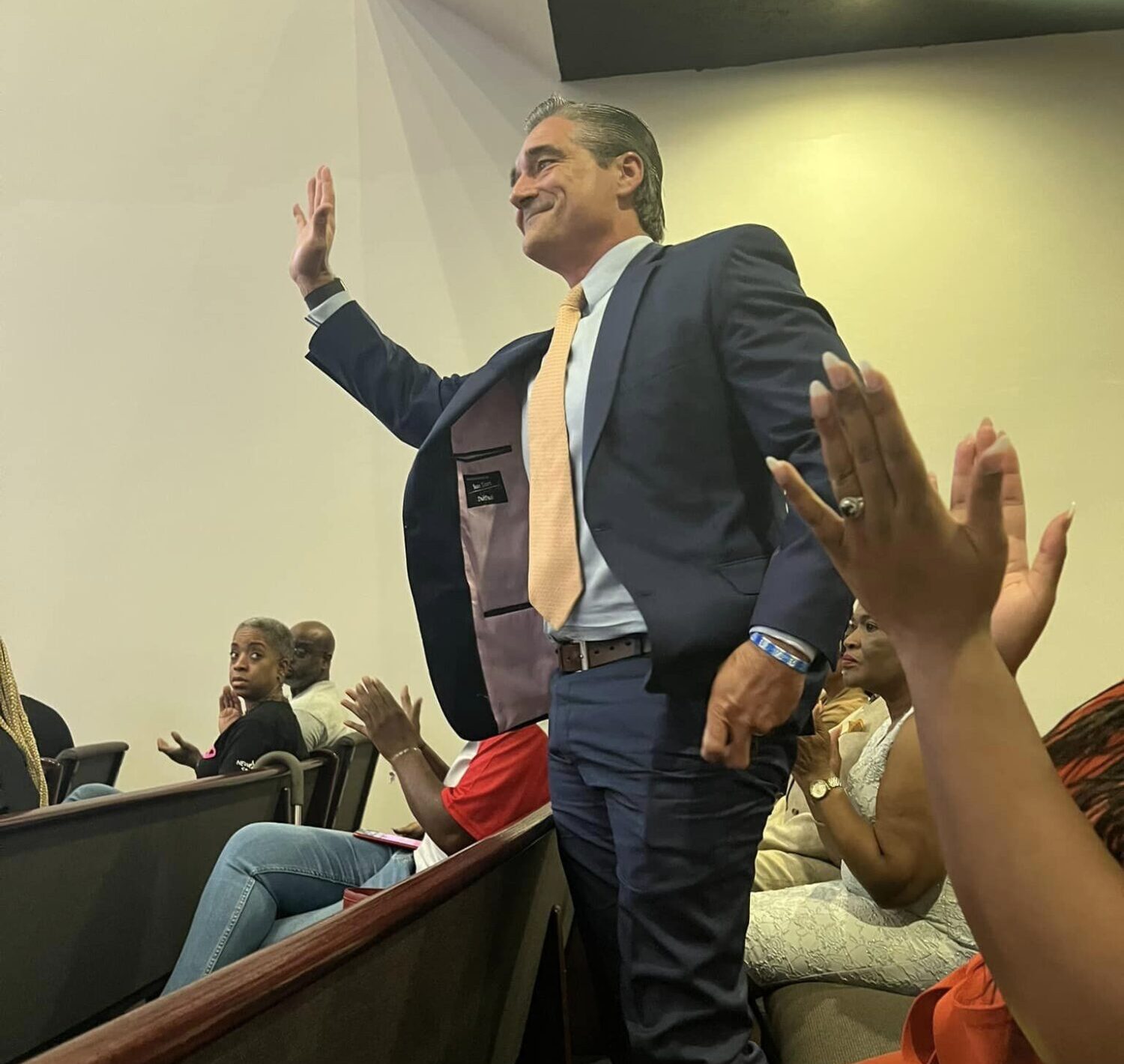

In his victory speech on Tuesday, Teare thanked the Texas Organizing Project, a progressive organization that has backed local reforms, including an initiative to drive people out of jail, and that endorsed him this year.
“When they put their mind to a race, they go all in,” Teare said. “Jumping in behind me is something that I’ll remember forever.”
Still, Teare has also carved out an overall moderate persona compared to Ogg’s unsuccessful challengers four years ago. For instance, he declined during the campaign to criticize Ogg over the death penalty, saying he agreed with an incumbent who has sought capital punishment many times. As a former prosecutor, Teare brought a different background to the race than Garza, a former public defender and labor lawyer, did in Austin.
In the general election, Teare will face another former prosecutor, Republican Dan Simons. He will be favored in a county that leans Democratic, though not as heavily as Travis.
He benefited during the primary from the erosion of Ogg’s relationship with the Democratic Party. As Bolts wrote last month, nearly 200 local precinct chairs adopted a party resolution in December that said Ogg had “abused the power of her office to pursue personal vendettas against her political opponents, sided with Republicans to advance their extremist agenda, and stood in the way of fixing the broken criminal justice system.”
Daniel Cohen, who heads the group Indivisible Houston, helped organize the resolution against Ogg. “This is a new model of accountability within the party, within the community,” he told Bolts. He said that most of the resolution’s proponents were motivated by reading coverage of how Ogg was “weaponizing” the power of her office against adversaries like County Judge Lina Hidalgo, former judge Franklin Bynum, whom Ogg petitioned to remove from the bench, and County Commissioner Rodney Ellis, who repeatedly opposed budget increases that Ogg requested.
For Cohen, the throughline between the various Democrats whom Ogg has targeted is that they supported the county’s misdemeanor bail reform. “It’s a pretty clear pattern in terms of the people who she fights.”
And Ogg kept attacking former allies during the primary campaign, for instance telling Texas Monthly that the Houston LGBTQ+ Political Caucus, which had endorsed her in the past and endorsed Teare this time, does not represent “truly gay people.”
In Austin, Garza maintained a far more harmonious relationship to his own party—benefiting for instance from the endorsements of the two Democrats who represent Travis County in Congress, Lloyd Doggett and Greg Casar.
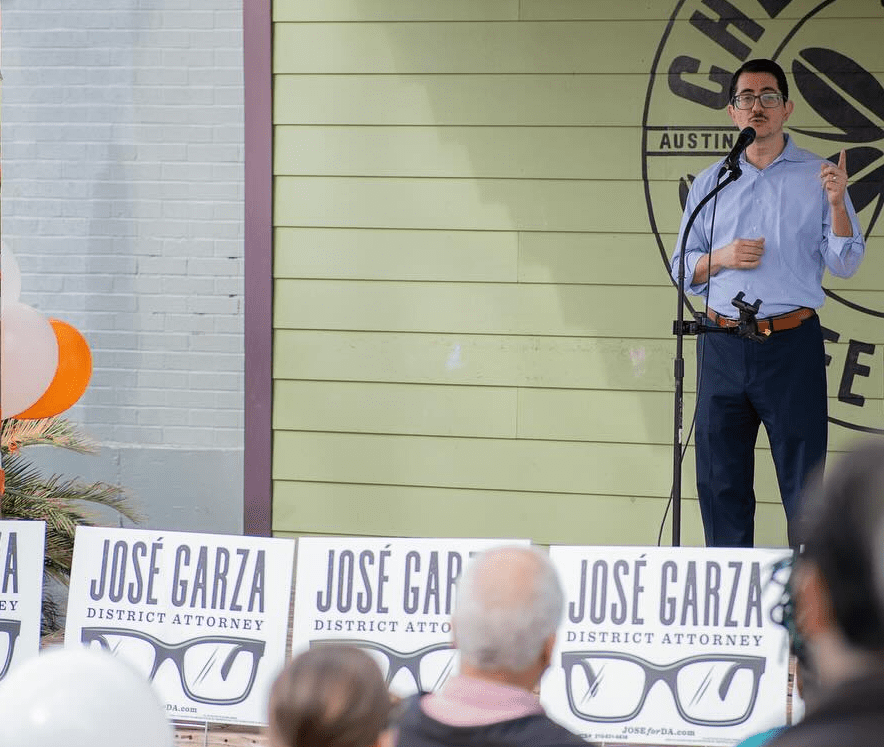
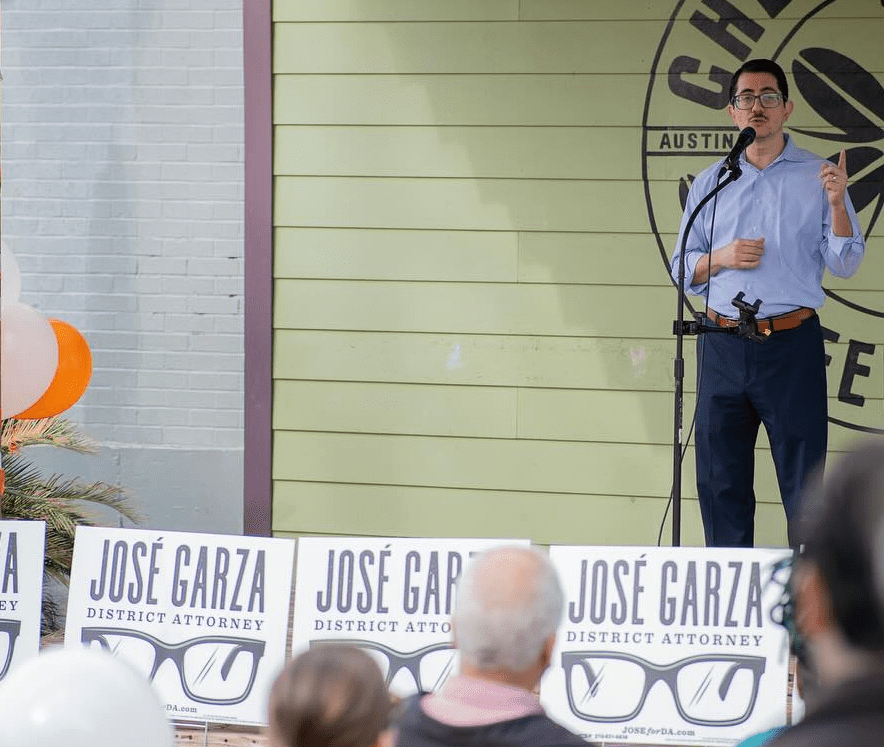
But he has a far more hostile relationship with Republicans—and while that’s unlikely to cost him his job in the general election, Garza’s critics are plotting to get him out through other means.
Garza has piloted a swath of reforms over his first term, including ramping up restorative justice and pretrial diversion programs to reduce the number of people with criminal convictions. In 2022, his pledge, alongside some other DAs to not prosecute abortion cases drew ire from Texas Republicans, who last year passed a law that authorized courts to remove prosecutors for declining to prosecute certain cases. Garza is now facing a legal petition to remove him under the new law.
Local police groups have also signaled support for such efforts after Garza filed charges against more than a dozen officers for using excessive force; Garza dropped the cases in December but told Bolts he still intends to continue pressing for “systemic change” in policing.
That threat of removal will loom large over the rest of the year, and Garza’s likely second term.
On Tuesday night, though, Garza started off by celebrating his victory. He told his cheering supporters, “Tonight, we scored a major victory for our progressive movement and for criminal justice reform.”
Stay up-to-date
Support us
Bolts is a non-profit newsroom that relies on donations, and it takes resources to produce this work. If you appreciate our value, become a monthly donor or make a contribution.



